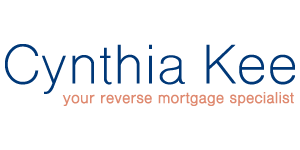Four Real Estate Trends That Are Hurting Boomer Homeowners
1. Mounting Costs Despite Paid-Off Mortgages
Even homeowners who’ve fully paid off their mortgages are feeling the squeeze. Climbing expenses in property taxes, insurance, utility bills, and aging home repairs are steadily draining household budgets.
2. Rising Mortgage Burdens for Those Still Paying
For many in their 80s, the luxury of a mortgage-free life isn’t a reality. Nearly one-third of homeowners in this age bracket remain tied to mortgage payments—and a staggering 43% of them are burdened by cost constraints.
3. Less Affordable Downsizing Options
The hoped-for exit strategy of selling a larger home and buying something smaller and more manageable isn’t as feasible as once believed. A shortage of affordable, smaller housing—like compact condos or apartments—leaves many with equity, but no suitable place to relocate.
4. High Home Values That Don’t Equal Security
While decades of appreciated home values have increased equity on paper, it doesn’t always translate into practical benefit. Due to limited mobility and lack of affordable alternatives, many aging homeowners can’t easily convert that equity into a sustainable future.
A More Complex Reality for Aging Homeowners
About one-third of households aged 65 and older are cost-burdened, spending more than 30% of their income on housing—and over half of that group are severely burdened, devoting more than 50% of income to shelter-related costs.
Housing strain has grown sharply—from roughly 10 million older households in 2019 to more than 12.4 million in 2023.
Even without a mortgage, older homeowners face escalating living costs like insurance, taxes, and repairs.
These struggles undermine the traditional retirement plan of leveraging home equity through downsizing—smaller homes were just 9% of new builds in 2023.
Why This Matters
What once symbolized security—home ownership—is increasingly failing that promise for aging Americans. As the oldest Baby Boomers enter their 80s, fixed or declining incomes, paired with high living expenses and few affordable relocation options, threaten their financial well-being. Without actionable alternatives, their ability to use their biggest asset—their home—as a retirement springboard is rapidly diminishing.
Final Take
Boomer homeowners may boast strong home equity on paper—but without feasible downsizing paths, their homes risk becoming burdens rather than blessings. And with rising day-to-day costs, the narrative of owning a home as a golden retirement strategy is being challenged more than ever.
Let me know if you'd like to dive deeper into any of the four pressures or explore potential solutions these homeowners are turning to!
TESTIMONIAL:
“There’s nowhere else I’d rather live.”
Linda had always cherished her historic Victorian home in San Francisco, built in the 1870s. When retirement approached, she found herself facing mounting expenses—from her mortgage and credit card debt to much-needed repairs on her cherished porch.
Determined to stay in the home she loved, Linda explored her options with her mortgage broker. A reverse mortgage turned out to be the perfect solution. It allowed her to pay off her mortgage, clear most of her credit card debt, and even set aside cash for emergencies—all while saving money each year.
Now, Linda can focus on preserving her home's original charm without the stress of financial burdens. “This home is my pride and joy,” she says. “Thanks to the reverse mortgage, I’m able to stay right where I belong.
Book Your Complimentary Assessment Today
Reverse Mortgages are a great and safe way to eliminate your monthly mortgage payment or finance a new home. If you are 62 or older and you own a house you can take advantage of a tax-free income stream with many retirement benefits.
Find out if you qualify. Give Cynthia a call today.



